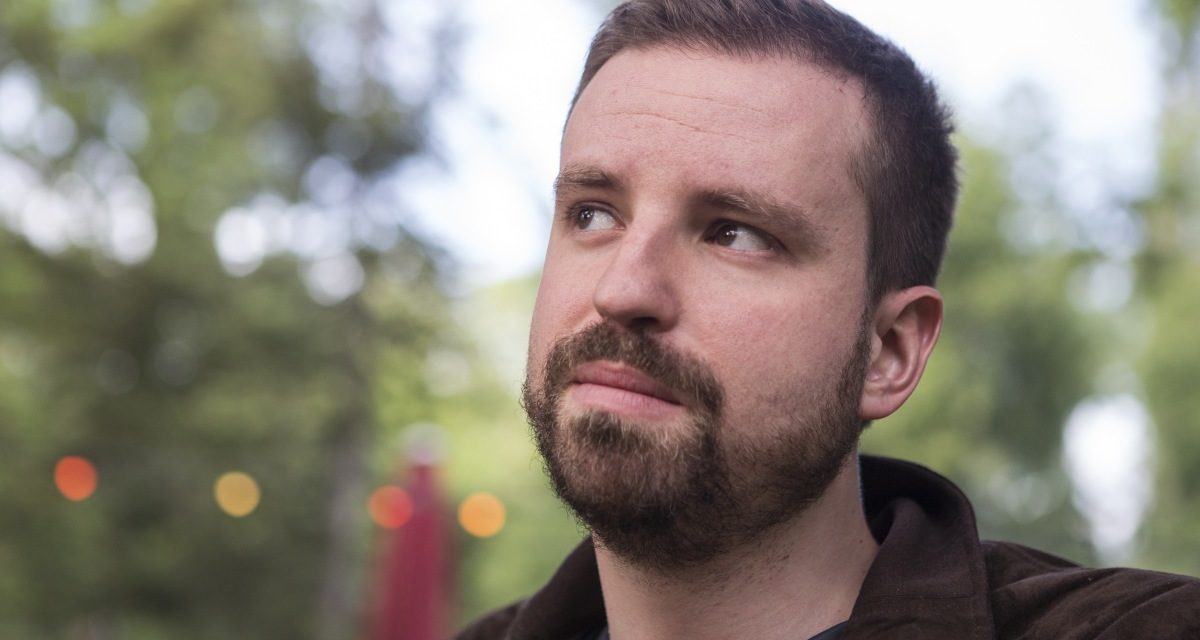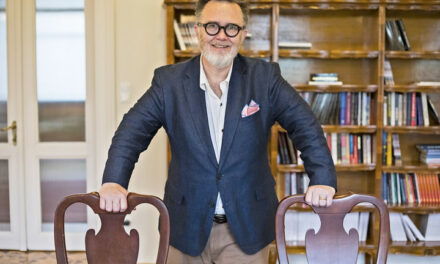It is quite clear that the host of Partizán feels comfortable when he has to ask questions. If you answer, then much less. Written by Gergely Szilvay.
Here is this Swedish school video, in which Márton Gulyás effectively commits treason, stating untruths such as that the Orbán government operates an oppressive regime and that the Hungarian people cannot raise their voices. The video highlights the closure of the country's "leading left-wing newspaper", Népszabadság, but remains silent about Telex, 444, 24.hu and their readership, and of course about the fact that the majority of Hungarians follow media with multiple political views.
In fact, everyone says and writes what they want and doesn't get caught for it. It is also not discussed why the majority of Hungarians hate the left, what happened before 2010, and what kind of performance the opposition is currently delivering.
In other words, the context usually deified by the left is missing.
When Róbert Puzsér interrogated Gulyás at Khrushchev's length, for three and a half hours, so to speak, about issues of transparency on his own Partizan, the treason case didn't get a second.
Then Márton Gulyás wanted to drag Máté Kocsis into his studio at all costs, who refused the opportunity with his human rights. At this, the hysterical Gulyás spent an evening collecting questions for Kocsis.
However, he also received one, from Gergely Vágvölgyi, who asked: "Doesn't he still feel extremely embarrassed that he promoted the political indoctrination of minor children with his politically biased statements that distort reality?"
Gulyás responded by saying that Vágvölgyi underestimates the intellectual abilities of 13-14-year-old Swedish children and that they are able to understand what is being said here. At the same time, the left recently accused Vágvölgyi of "dehumanizing in all kinds of ways" in a fashionable way.
Bringing up dehumanization is common on the left when they don't want to argue, and therefore accuse the opponent of not seeing them as human beings. Of course, this is never the case, they imagine this thing in the minds of their debate partners, otherwise something might have been confused in Gulyás's mind, because Vágvölgyi's question is not as dehumanizing as when you tell a trans person that he is a man, even if they are women. he imagines himself (although guys are also people, so dehumanization doesn't stop here either).
It is so incomprehensible why Gulyás brought up the dehumanization argument that one suspects that he actually had no idea what he was saying.
But what Gulyás says about the cognitive abilities of 13-14-year-old Swedish students is also exciting. Vágvölgyi already noted that the school is also an authority, and it is not customary to question all the information that is said there. If a student argues with the course material (if he wants to learn it at all), he usually does so under the influence of his parents and what he hears at home. Of course, 13-14 year old students understand what is in the video. They just won't question it.
I don't see crowds of 13-14-year-old Swedish students researching Hungarian affairs, because they are suspicious that the activist and the Swedish CEU woman in the video lied.
In addition, Swedish schools teach all world history, but much less than, for example, here. The curriculum of Swedish history education and civics classes is much more Sweden- and Scandinavia-focused than the Hungarian literature is focused on Hungary.
And one more thing: when Ferenc Kőszeg couldn't decide whether it was wrong for a teacher and his student to masturbate together, Gulyás protested strongly, indicating that in his opinion even 17-18-year-old students can't decide what is actually good for them.
So, the 17-year-old student is not emotionally and intellectually mature enough to give consent, but he has the maturity to assess the truth of a teaching video defaming Hungary on political grounds.
Sexual maturity and intellectual maturity are not the same thing, but they are related, and sexual maturity usually occurs earlier. Our brain continues to develop until we are 25 years old. It is enough to open a university developmental psychology textbook and skim the chapters on school and adolescence to see that the age of 13-14 is quite turbulent both emotionally and intellectually - although we can also know this from our own experience.
So no, it doesn't have the same weight if something is a course material, or if something is part of public discourse, maybe an educational video for further training, but not a course material.
If the curriculum was not particularly important in education, then the Hungarian left would not spend so much on the Hungarian framework curriculum either. No matter how we twist it, the fact that Gulyás appears in a false school educational video is more serious than if the same false video was not a school curriculum video.
It is quite clear that Márton Gulyás only feels comfortable when he has to ask. If you answer, then much less. Good luck with further thematizing the housing crisis.













